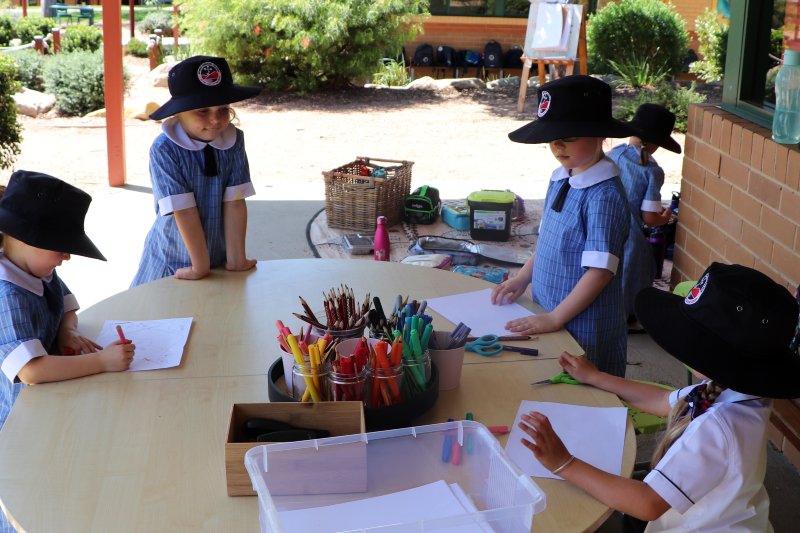
Getting Ready for "Big School"
Starting Kindergarten is one of the major transitions an individual will make throughout their lives. The new school environment and its rhythm are completely new for children. While the transition to school can be a time of eagerness and excitement, it can also bring a sense of feeling uncertain, hesitant, or even a little anxious.
During the first weeks at Nowra Anglican College, our initial goals include, assisting all children to establish a sense of belonging, nurturing a growth mindset in his/her approach to new levels of learning, and to empower the children to opt in to new opportunities across the spectrum of school life.
By supporting a child’s emotional and social adjustment to new school life, we are nurturing and empowering the whole child whilst at the same time valuing and acknowledging the individual character each child brings.
How can you help prepare your children for their first day?
- Talk positively with your child about what they might expect when they come to school.
- Label everything including clothing, hats, school bags, lunchboxes, and drink bottles including lids.
- Attach a distinguishing key ring or ribbon on backpacks to assist with easy identification.
- Give your child practice in opening and closing lunch boxes (waste-free), drink bottles, lunch wraps (waste-free), and school bags.
- ‘Wear in’ new shoes to avoid discomfort on the first day.
- To help body clocks, gradually make adjustments to your child’s day by making mealtimes and bedtimes appropriate to a school day.
- Read to your child every day and as often as you can.
How can you help your children once they have started school?
- Be punctual to school so that your child has time to play with their friends before going into class.
- Be interested in what your child is learning and stay connected with the class through Seesaw.
- Check bags and reading folders for notes each afternoon.
- Encourage your child to pack their bag the evening before so that they know exactly where their belongings are e.g. reading folder, drink bottle, lunch box, and hat. Remind them to give any notes to the teacher. Gradually increase their independence and responsibility for these tasks.
- Be enthusiastic about their achievements. Praise them for their efforts and don’t compare your child’s performance with that of their friends.
- Keep a change of underwear in your child’s bag. Even children who haven’t had an ‘accident’ for a long time may be busy playing or not like to ask. It is far less stressful if they know they have a pair of their own.
- Don’t send a lot of money to school as children often lose it or kindly give it away!
Encouraging children to share and talk about what they learnt each day is a great way to keep them positive and engaged with what they are learning. Ask your child questions to help reinforce what they have learnt, what good things happened to them that day and how they would like to practice different skills at home.
A few good examples are:
- What was the best thing that happened to you today?
- What activities did you do in class today?
- What was the most interesting thing that you learnt?
- What was the nicest thing you did for someone else today?
- What did you find difficult today?
- How are your friends?
- If you had the chance to be the teacher tomorrow, what would you teach the class?
- What is one thing you hope to learn this week?
- What games did you play today during outside time?
During the first few days and weeks, it is natural for both parents and children to experience a range of emotions, including excitement, anticipation, and apprehension. You can help your child by focusing on the positives.
In the morning, when your child has settled to an activity, say ‘goodbye’ just once and then leave, assuring your child that you will be there to pick them up in the afternoon. Do not delay your departure as it only increases children’s anxiety if they sense your apprehension. Be confident that your child will have a wonderful day and will be keen to come again. If there are any problems, be assured that we will call you.
Our teachers are here to help you as parents and to make your child’s first year at school enjoyable. If you ever have concerns, we invite you to make an appointment with the class teacher at a mutually agreeable time. We value your encouragement and support and look forward to the start of an exciting journey together.
If you are interested in reading more, Maggie Dent, author, educator, and resilience specialist has a great blog post Getting little ones ready for big school on her website.